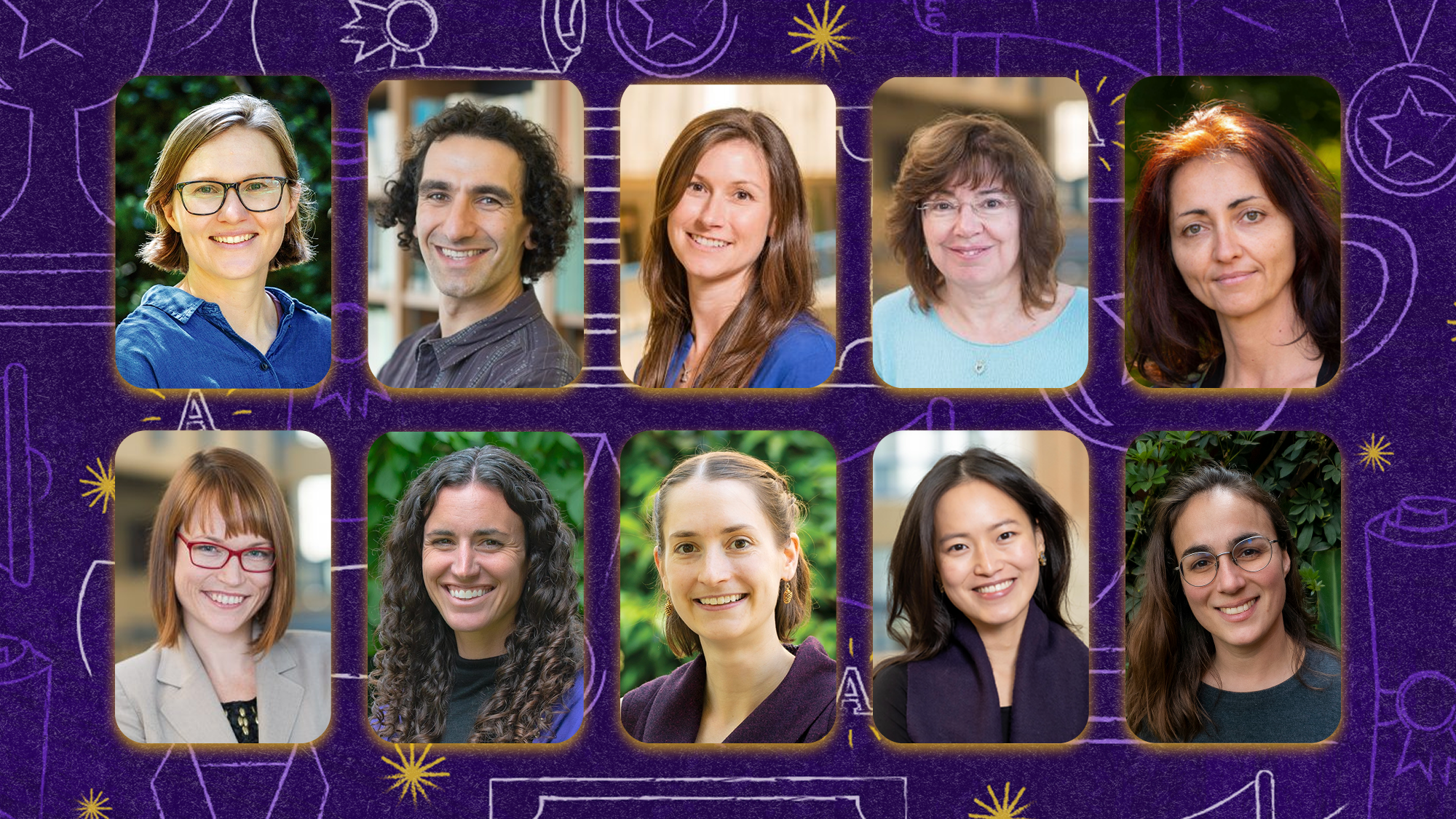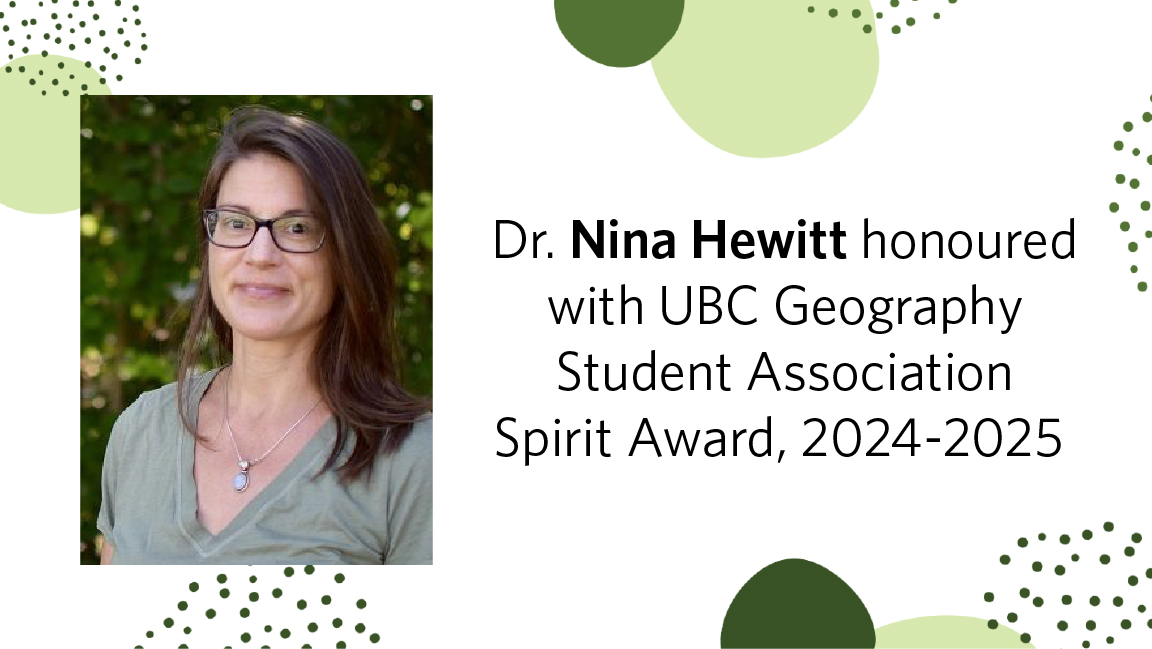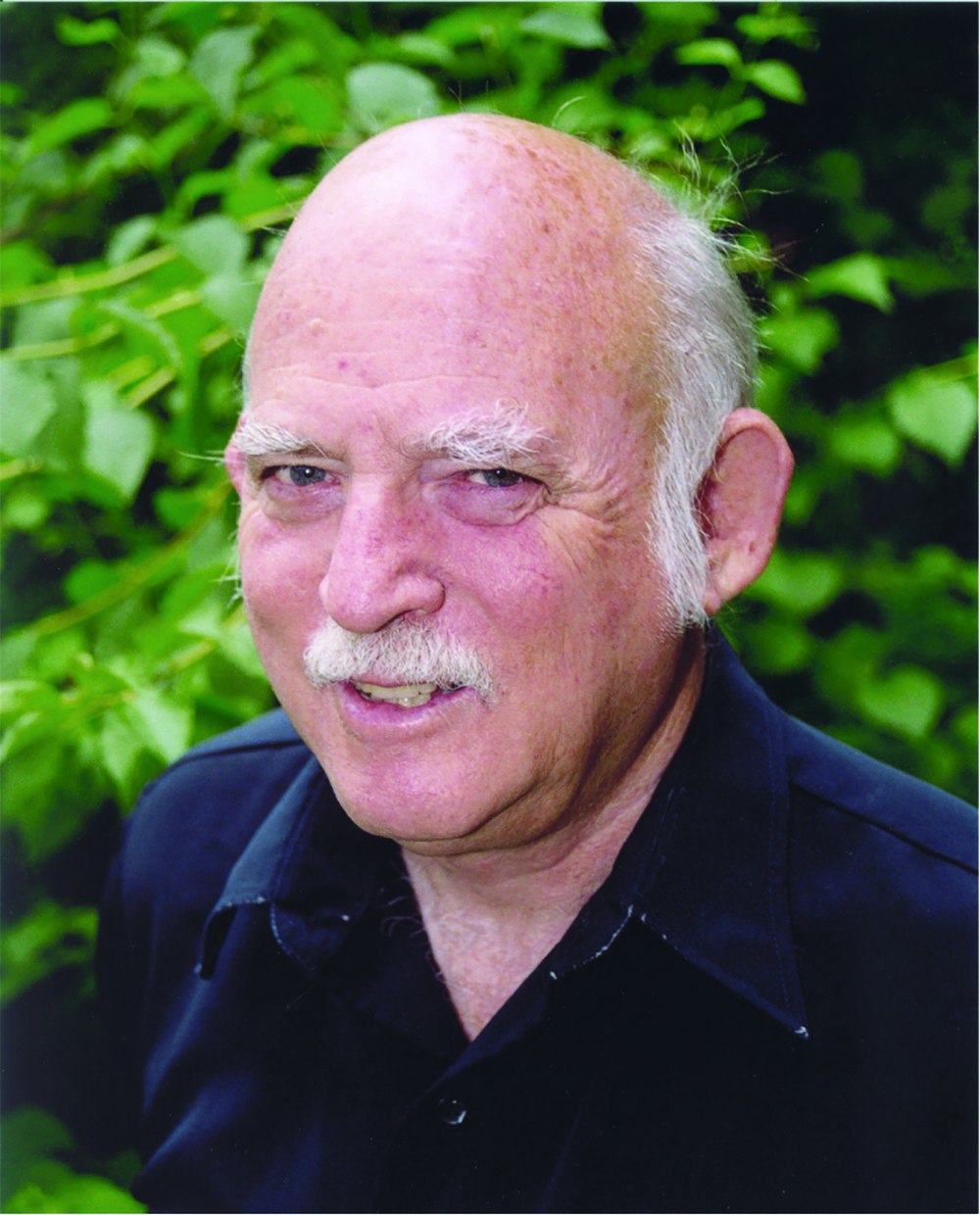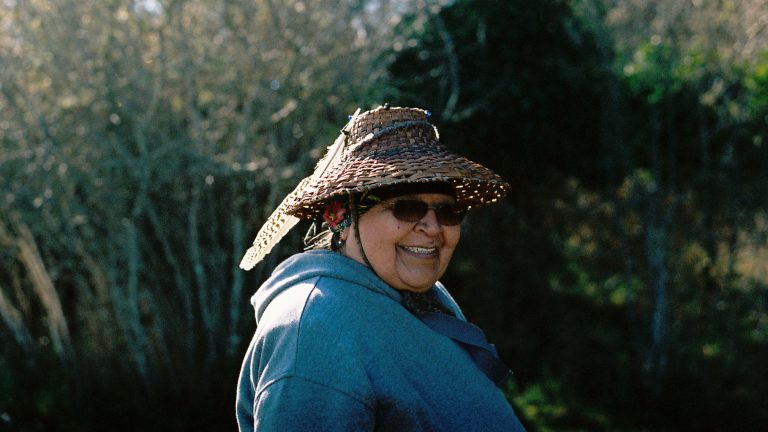

Penelakut Knowledge Holder Karen Charlie at Dionisio Point Provincial Park. Photo by Kali Spitzer
A new exhibition, co-curated by UBC Geography alumna Jessica Hallenbeck, will take place on Galiano Island on July 23rd – 24th.
The Water We Call Home, at Yellowhouse Art Centre, features the collective work of Indigenous women who have returned to Galiano Island to share stories of connection and survival, in order to begin to heal an extended family after 100 years of disconnection due to colonization.
Over the past two years siyēye nii ‘u tthu sut’ku’luts | siyēye tun’i ‘utl sqwun’u, an advisory circle of six Indigenous matriarchs, have gathered on the island to re-presence connections to fish, water, and family around the Salish Sea.
The exhibition features a series of films about the history of this work, and the matriarchs’ gatherings, by Coast Salish and Sahtu Dene artist Rosemary Georgeson, and alumna Jessica Hallenbeck. This marks a continuation of Hallenbeck and Georgeson’s decade-long collaboration, and Hallenbeck’s resulting PhD thesis at UBC — also titled The Water We Call Home — which won the Starkey-Robinson Award for Graduate Research on Canada.
Exhibited alongside are new works in photography by Dene photographer Kali Spitzer and a sound installation by Hwlitsum artist Richard Wilson.
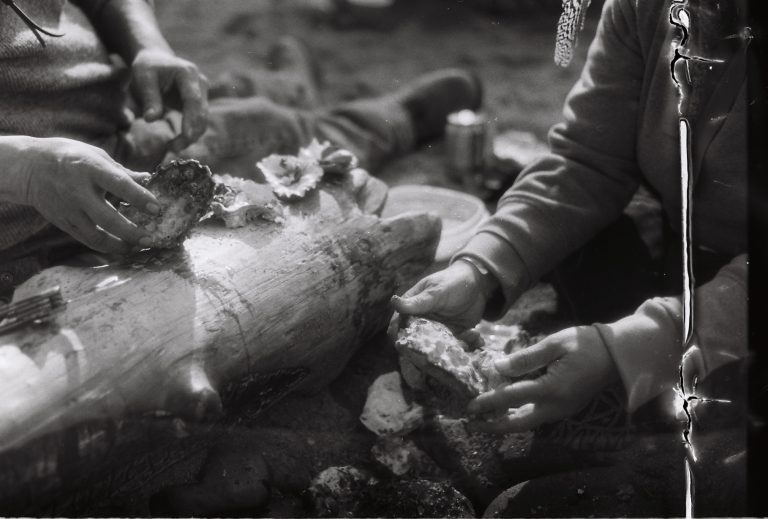

Oysters are opened. Photo by Kali Spitzer.
Co-curator Rosemary Georgeson says: “This work is changing the story, that is bringing healing back to a place that was ripped apart and turned over by impacts of colonialism, by the racial attitudes of the old ones, the old grandfathers, in how they took the mothers away from the children. We came back. We gave voice to these things that happened.”
Of the experience, Hallenbeck says: “The re-presencing of connections between my dear friend and collaborator Rosemary Georgeson’s family, a hundred years later, is the work of decolonial world building, and I am honoured, especially given the strength that I find in knowing my ancestors, to have been able to support and witness this incredible work.”
The exhibition encourages visitors and participants to consider what decolonization means in a broader web of relationships and how re-presencing has been central to this process. It is an invitation to everyone to witness the enduring strength of Indigneous women’s connections to fish, water, and family, and to envision a future where Indigenous identity is structured through water and family rather than colonial law.
The Water We Call Home takes place at the Yellowhouse Art Centre, Galiano Island, on Saturday 23rd and Sunday 24th July. It is co-curated by Rosemary Georgeson, Jessica Hallenbeck and Kate Hennessy.
On July 23 there will be an opening night screening open to the general public which will include new works created for the exhibition. On July 24 there will be an invitation-only, day-long symposium. Honoured speakers have been invited to gather together in conversation about the exhibition and to reflect on how it relates to their own experiences and work.
The symposium will be livestreamed/recorded so that it can be widely shared and taken back to communities. Consult the exhibition website for full details.
